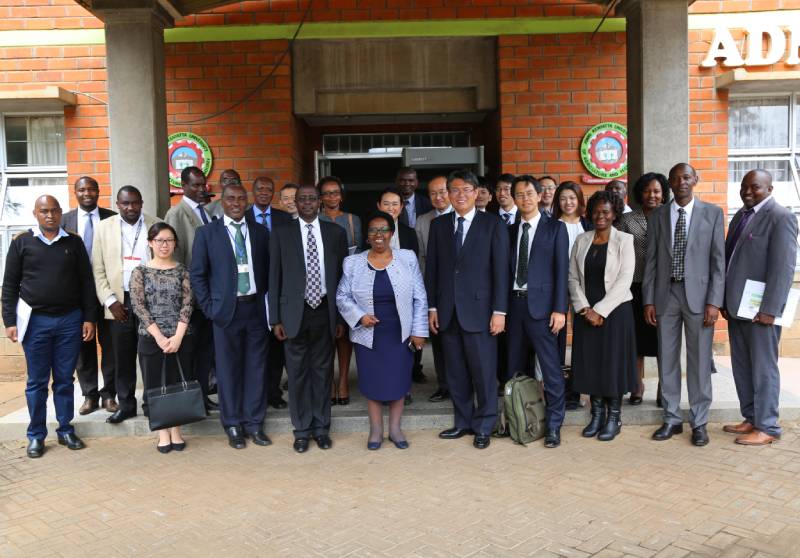
The African Union-african innovation-JKUAT and PAUSTI Network (AFRICA-ai-JAPAN) project second phase has been given the green light for another five years beginning, June 2020. This was revealed during the 5th Joint Coordination Committee (JCC) meeting held at JKUAT Main Campus, November 20, 2019.
JICA Kenya Chief Representative, Mr Komori Katsutoshi, while lauding the partnership, collaboration and commitment witnessed by the project partners said, the second phase of the project aims at enhancing the development of human resource in Science, Technology and Innovation (STI).